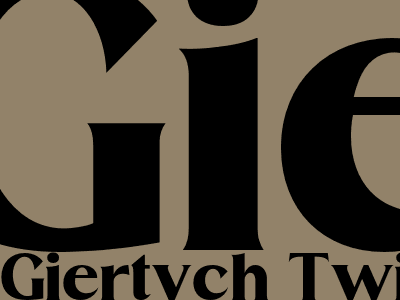Everything You Need to Know About the Controversial Giertych Twitter Account
Introduction
Roman Giertych, a Polish lawyer and politician, has been making waves on Twitter with his controversial posts. His tweets have sparked debates, garnered criticism, and even led to legal action. In this blog post, we will delve into the Giertych Twitter saga, examining the key issues, controversies, and legal implications surrounding his social media presence.
Controversial Tweets and Public Outcry
Giertych's Twitter account (@RomanGiertych) has become a lightning rod for controversy. His tweets often express strong opinions on politics, religion, and social issues, frequently crossing the line of acceptable discourse. One of the most controversial incidents occurred in 2019 when he compared the LGBT+ community to Nazis. This tweet sparked outrage and condemnation from various organizations and individuals.
Giertych's tweets have not only drawn criticism from the public but have also led to legal consequences. In 2021, he was convicted of defamation for a series of tweets targeting a journalist. The court ruled that his tweets had damaged the journalist's reputation and ordered Giertych to pay damages.
Freedom of Speech vs. Hate Speech
The Giertych Twitter saga raises important questions about freedom of speech and the boundaries of acceptable discourse on social media platforms. Giertych's supporters argue that his tweets are protected by freedom of speech and that he has the right to express his opinions, even if they are controversial. However, critics argue that his tweets cross the line into hate speech and incite violence, which should not be protected.
The legal framework around hate speech varies from country to country. In Poland, where Giertych is based, hate speech is illegal and punishable by law. However, the definition of hate speech can be subjective, and it is often difficult to determine where legitimate criticism ends and hate speech begins.
Role of Twitter in Content Moderation
Twitter has a complex role in content moderation, balancing the need to protect freedom of speech with the responsibility to prevent the spread of harmful content. The platform has faced criticism for both over-moderating content and for not doing enough to combat hate speech and misinformation.
In the case of Giertych's tweets, Twitter has taken a cautious approach. The platform has not removed his tweets but has labeled them as "potentially sensitive content" and added warnings to users who attempt to view them. This approach has been criticized by some who believe that Twitter should do more to prevent the spread of hate speech on its platform.
Conclusion
The Giertych Twitter saga highlights the complex and often contentious relationship between freedom of speech, hate speech, and the role of social media platforms in content moderation. Giertych's tweets have sparked important debates about the limits of acceptable discourse online and the challenges faced by platforms in balancing the rights of users with the need to protect the public from harmful content.
As the use of social media continues to grow, it is likely that we will continue to see controversies surrounding the boundaries of acceptable speech online. The Giertych Twitter saga serves as a reminder of the importance of having robust and transparent content moderation policies and of fostering a culture of respect and tolerance in online spaces.

Komentar